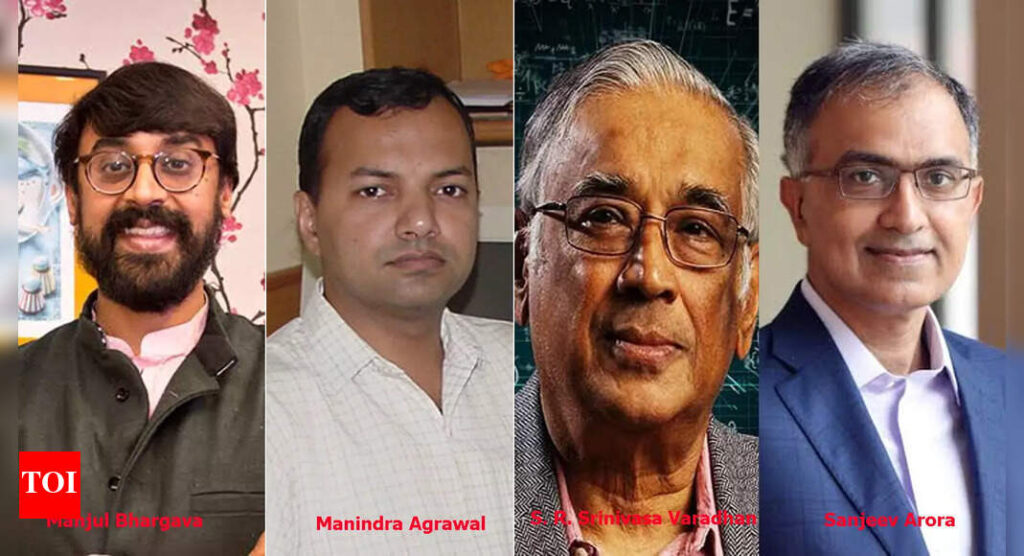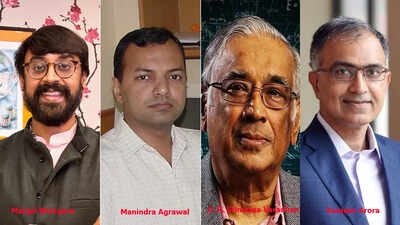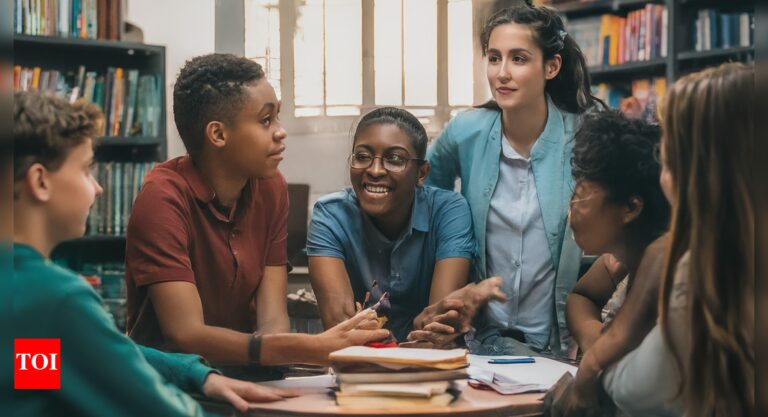
In the field of mathematics, several Indian-origin scholars have made lasting contributions while being associated with institutions in the US. These mathematicians have shaped diverse areas ranging from number theory and statistics to optimisation and computational complexity. Their academic journeys and institutional affiliations reflect the global nature of mathematical research.Seven mathematicians of Indian origin who have worked or are working in the US are highlighted below, focusing on where they studied and their key academic contributions.Harish-Chandra Mehrotra Harish-Chandra Mehrotra (1923–1983) was born in Kanpur, India. He pursued his doctoral studies at Cambridge University under the supervision of Paul Dirac. He later became a prominent figure at the Institute for Advanced Study in Princeton, US. His principal contribution was in representation theory and harmonic analysis on semisimple Lie groups. He developed the Harish-Chandra transform, a critical tool in the study of Lie groups. In 1953, he was awarded the Bôcher Memorial Prize by the American Mathematical Society. Although considered for the Fields Medal, he did not receive it.Calyampudi Radhakrishna RaoCalyampudi Radhakrishna Rao (1920–2023) was born in Karnataka, India. He pursued his education at Cambridge University, where he laid the groundwork for many contributions in statistics. His most recognised achievements include the Cramer-Rao Bound and the Rao-Blackwell Theorem, both of which are central to estimation theory. He also worked extensively on orthogonal arrays. Later in his career, he was based in the US, where he received the US National Medal of Science. He was also a recipient of the Padma Vibhushan.Narendra KarmarkarNarendra Karmarkar (born 1958) was born in India and earned a B.Tech degree from the Indian Institute of Technology (IIT) Bombay. He obtained his PhD in the US, following which he developed the well-known Karmarkar’s algorithm during his tenure at AT&T Bell Laboratories. This algorithm marked a major advancement in linear programming by offering a polynomial-time method that was more efficient for large-scale problems than the simplex method. His work earned him the John von Neumann Theory Prize in 1989.Manjul BhargavaManjul Bhargava (born 1974) was born in Canada to Indian parents and grew up in the US. He studied and now teaches at Princeton University. Bhargava’s contributions to number theory include a new interpretation of Gauss’s composition law and major work on quadratic forms and elliptic curves. He became the first mathematician of Indian origin to receive the Fields Medal in 2014.Manindra AgrawalManindra Agrawal (born 1966) was born in India and earned his academic credentials from IIT Kanpur. While his most acclaimed work—the AKS primality test—was developed in collaboration with others in India, he has also been a visiting scholar and collaborator at institutions in the US. The AKS algorithm provided the first deterministic polynomial-time method for testing whether a number is prime.SR Srinivasa VaradhanSR Srinivasa Varadhan (born 1940) was born in Chennai, India. He completed his PhD at the Indian Statistical Institute before moving to the US, where he joined the Courant Institute of Mathematical Sciences at New York University in 1966. His work in probability theory, especially large deviation theory, has had applications in multiple fields including physics and finance. He received the Abel Prize in 2007.Sanjeev AroraSanjeev Arora (born 1968) was born in India and received his PhD (1994) from the University of California, Berkeley. He is currently a professor at Princeton University. His research spans approximation algorithms and computational complexity, including key work on the PCP theorem and learning algorithms. He has been awarded the Gödel Prize twice for his contributions to computer science.These mathematicians represent a diverse and impactful group whose academic roots span prestigious institutions in India, the UK, and the US Their careers reflect the transnational character of mathematical scholarship and research excellence.TOI Education is on WhatsApp now. Follow us here.








